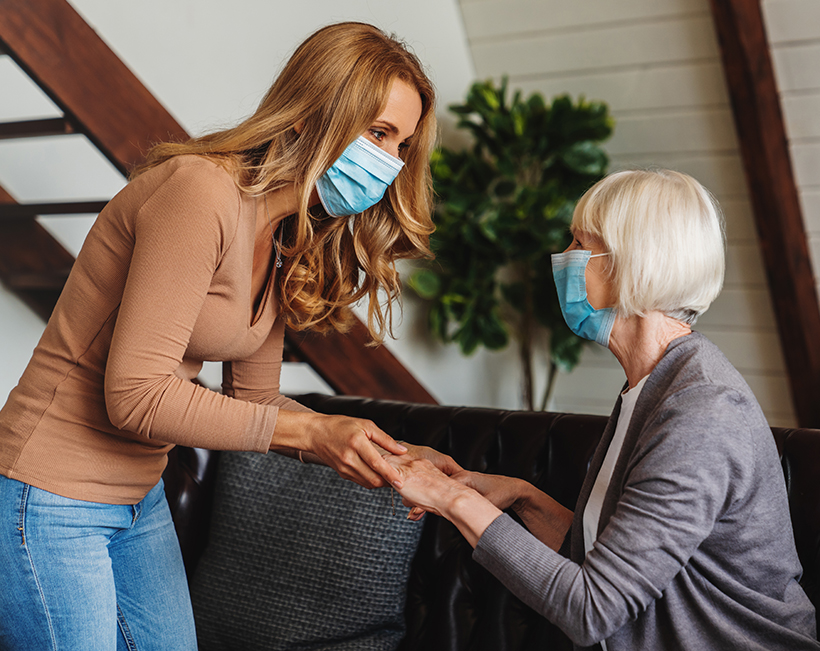Homeland HomeHealth and HomeCare: Five Years of Excellence and Counting
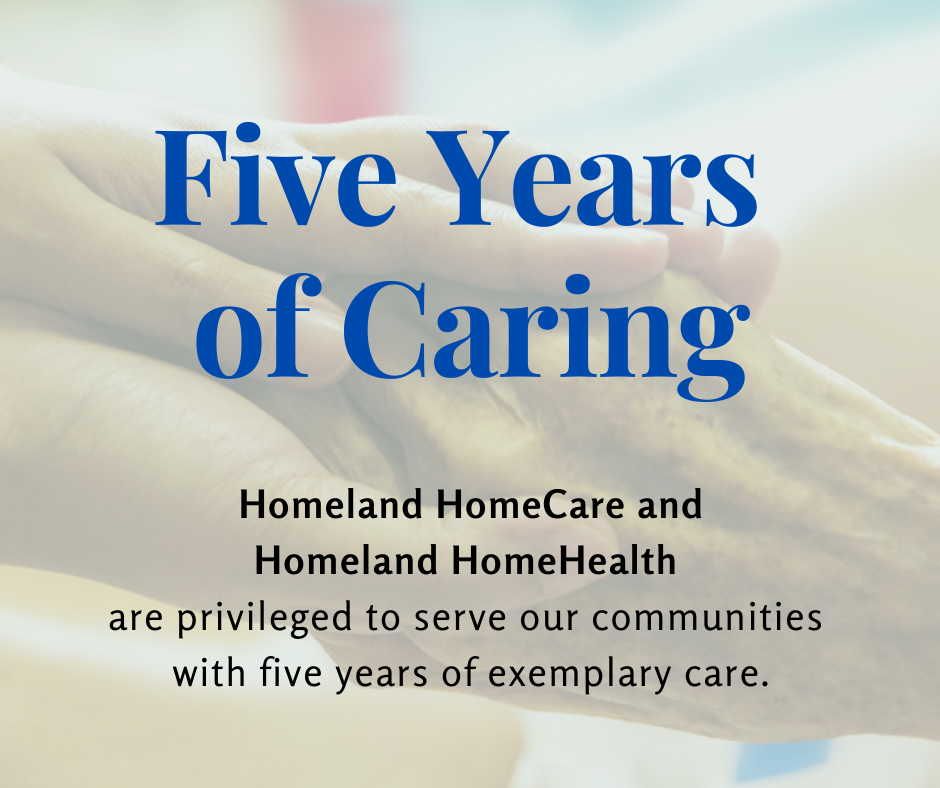 Since 1867, Homeland Center has been committed to meeting the ever-changing needs of the community. In keeping with this tradition, Homeland HomeHealth and Homeland HomeCare were established five years ago to provide a continuum of services for patients and their families using a team-approach, which places patients at the center of care. Since the launch of these services, thousands of patients have received exemplary care by a team who treats them like family.
Since 1867, Homeland Center has been committed to meeting the ever-changing needs of the community. In keeping with this tradition, Homeland HomeHealth and Homeland HomeCare were established five years ago to provide a continuum of services for patients and their families using a team-approach, which places patients at the center of care. Since the launch of these services, thousands of patients have received exemplary care by a team who treats them like family.
As the director of Homeland HomeHealth with more than two decades of experience in the field, Lora Bierce, RN, WCC, COS-C, has seen the program expand to meet the growing demand of patients who want the independence of staying in their homes as they age. The HomeHealth team includes physical, occupational and speech therapists; nurses, nutritional counselors, social workers and Certified Nursing Assistants (CNAs) who are dedicated to compassionate care and medical excellence.
Since its formation, Homeland HomeHealth has expanded its scope of services to better serve patients. In 2017, HomeHealth added telehealth.
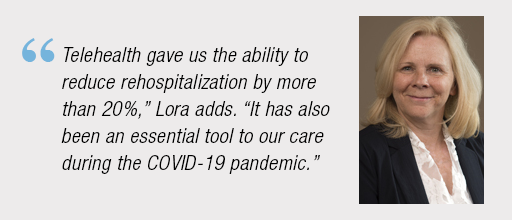
Lora takes great pride in working with a staff that provides compassionate care to patients and their families.
Recently, Lora’s team had the pleasure of working with a gentleman with congestive heart failure. The HomeHealth team worked diligently to follow his wishes to remain in his home as long as possible. As his illness progressed, Lora and her team helped him transition to hospice care with Homeland for the final days of his end-of-life journey.
“We were with him every step of the way,” Lora says. “His final days were filled with comfort and peace, which is all he ever wanted.
Like Lora, Tanya Custer, LPN, Director of Homeland HomeCare, is driven by her love of helping others. Homeland HomeCare specializes in the non-medical aspects of care to include meal preparation, light housekeeping, running errands, monitoring diet and medication reminders, bathing and dressing. Personal home care can be administered anyplace an individual calls home.
In 2017, the Pennsylvania Department of Health issued a new regulation allowing home care aides to be trained to do additional tasks in the home setting. Homeland HomeCare was ahead of the game“As soon as we received word about this option we started educating our CNAs to become Direct Care Workers,” Tonya says. “We trained our CNAs on peg tube care, ostomy care, assistance with medication administration and simple wound care.”
For Tanya and her team, it’s taking a walk for ice cream or hearing family stories from their clients that make their work rewarding. Tanya recalls a gentleman who was staying with his wife in a hotel while their house was undergoing construction. The fresh paint in this home was compounding his health issues making it difficult for him to breath. The HomeCare team cared for him in his hotel so his wife could continue working.
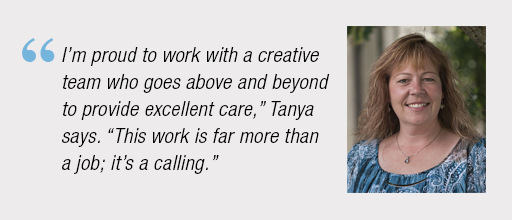
Both Lora and Tanya foresee significant growth in their services over the coming five years as the baby boomer generation ages and Americans live longer than ever before. Today, 46 million adults living in the United States (15 percent of the population) are 65 or older. By 2060, that number is expected to climb to about 98 million, or 24 percent of the population (Population Reference Bureau).
“We are prepared for whatever the future brings,” Lora and Tanya say. “It’s a privilege to serve individuals and families in our community.
For more information on Homeland HomeHealth call 717-412-0166. For information on Homeland HomeCare call 717-221-7892.


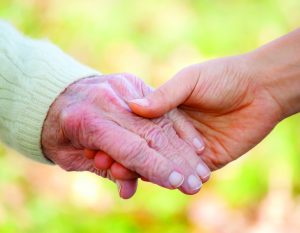 As you or a loved one are nearing the end-of-life, physical symptom and pain relief is essential but it’s only a part of Homeland Hospice’s overall healthcare approach. Helping patients and their families manage the emotional and mental aspect of this poignant journey, through spiritual counseling, is part of Homeland’s holistic approach to healthcare.
As you or a loved one are nearing the end-of-life, physical symptom and pain relief is essential but it’s only a part of Homeland Hospice’s overall healthcare approach. Helping patients and their families manage the emotional and mental aspect of this poignant journey, through spiritual counseling, is part of Homeland’s holistic approach to healthcare.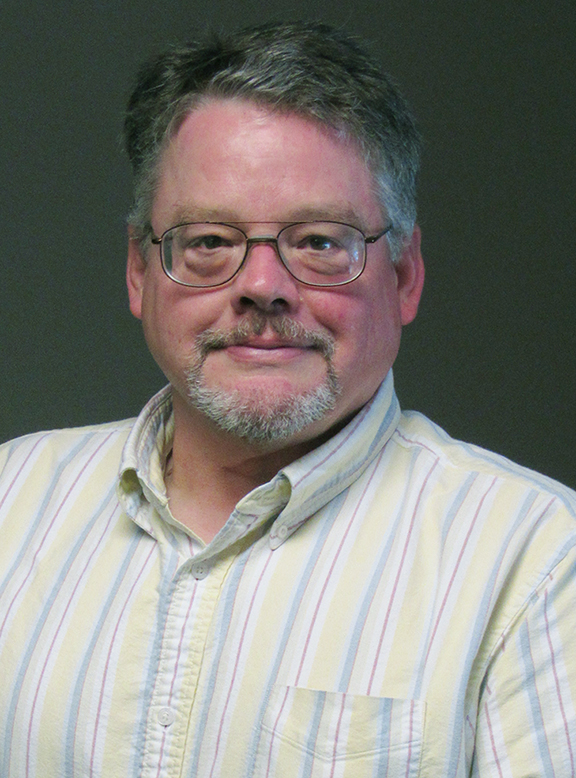 It has been said that life comes full circle. For Dann Caldwell, chaplain for Homeland Center and Homeland Hospice, the loop he began as an intern with Christian Churches United of the Tri-County Area (CCU) has closed with his recent appointment to serve as president of the organization’s board of directors.
It has been said that life comes full circle. For Dann Caldwell, chaplain for Homeland Center and Homeland Hospice, the loop he began as an intern with Christian Churches United of the Tri-County Area (CCU) has closed with his recent appointment to serve as president of the organization’s board of directors.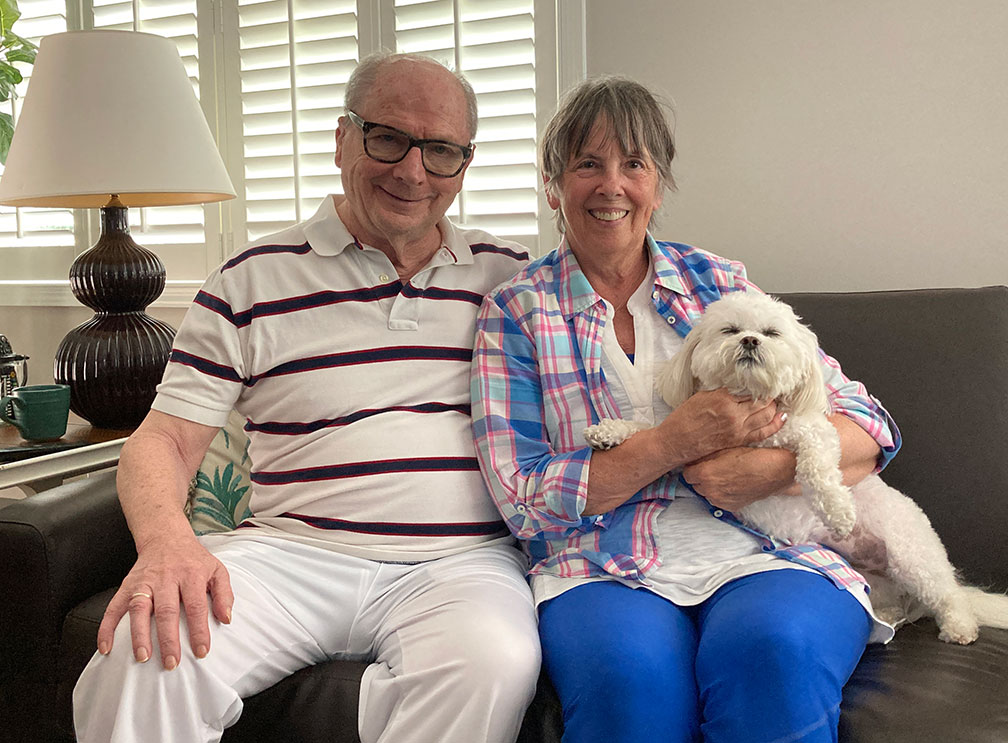
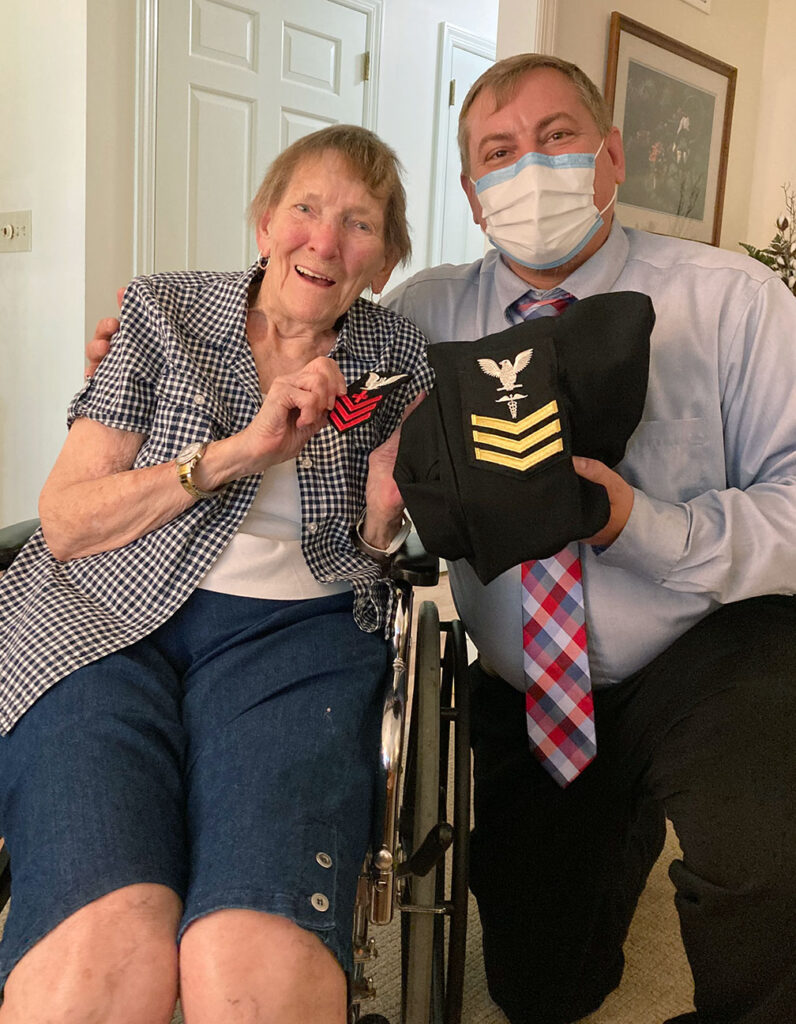 A remarkable life is not given. It is earned through service above oneself and demonstrations of courage and compassion in extraordinary times. Anna Weinfurter’s journey began in Montana and took her across the country while serving in the United States Navy during World War II. While her uniform has been retired for decades, she continues to embody valor, honor and kindness.
A remarkable life is not given. It is earned through service above oneself and demonstrations of courage and compassion in extraordinary times. Anna Weinfurter’s journey began in Montana and took her across the country while serving in the United States Navy during World War II. While her uniform has been retired for decades, she continues to embody valor, honor and kindness.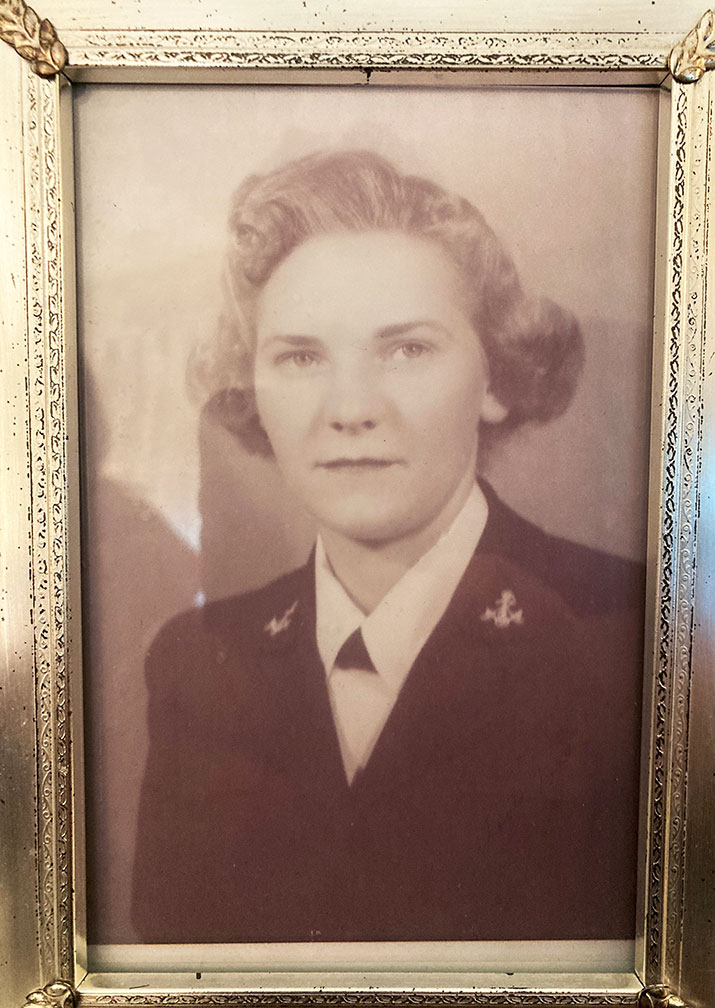 Anna left the family farm for the first time in her life to report for duty in Seattle, Washington in the spring of 1942. She was assigned to Hunter’s College in New York City to complete basic training. Anna and her fellow soldiers traveled by “troop train” from Seattle to New York. A troop train solely transported military personnel. At the time, soldiers were segregated by rank and gender. During the day, Anna completed physical exercises, which included running alongside the train. At night, the train continued its journey to New York while the soldiers slept.
Anna left the family farm for the first time in her life to report for duty in Seattle, Washington in the spring of 1942. She was assigned to Hunter’s College in New York City to complete basic training. Anna and her fellow soldiers traveled by “troop train” from Seattle to New York. A troop train solely transported military personnel. At the time, soldiers were segregated by rank and gender. During the day, Anna completed physical exercises, which included running alongside the train. At night, the train continued its journey to New York while the soldiers slept.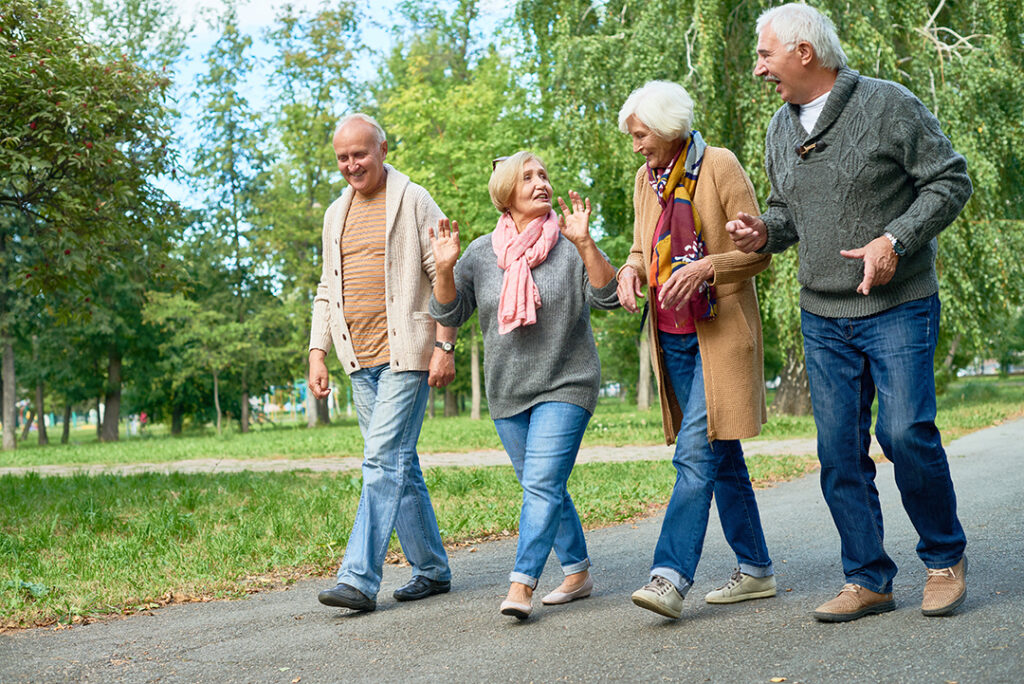
 Go easy on yourself. Welcome emotions of all kinds while being compassionate to yourself. All of your feelings are valid. Do not compare yourselves to others, or how they think you should feel, or how you think you should feel. We all recover and adjust at our own pace. After missing our in-person gatherings for so long, we may not be feeling overly excited inside about getting together again. There is no right or wrong. Do not add pressure to yourself by believing that you should feel a certain way.
Go easy on yourself. Welcome emotions of all kinds while being compassionate to yourself. All of your feelings are valid. Do not compare yourselves to others, or how they think you should feel, or how you think you should feel. We all recover and adjust at our own pace. After missing our in-person gatherings for so long, we may not be feeling overly excited inside about getting together again. There is no right or wrong. Do not add pressure to yourself by believing that you should feel a certain way.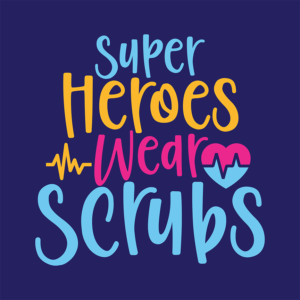
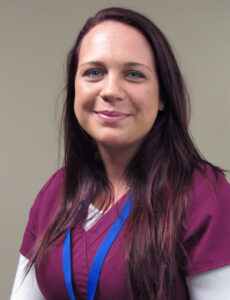 For hospice nurses like Hannah, every day starts with a routine of scheduled visits but plans easily change based on the health challenges of patients. Finding the balance between these two important priorities keeps each day different than the one before and allows nurses to be there for patients and their families when help is needed most.
For hospice nurses like Hannah, every day starts with a routine of scheduled visits but plans easily change based on the health challenges of patients. Finding the balance between these two important priorities keeps each day different than the one before and allows nurses to be there for patients and their families when help is needed most.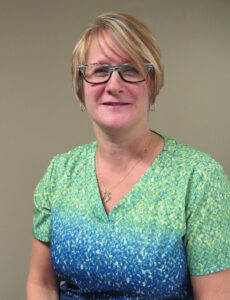 “The need for nurses has never been greater,” Cathy says. “This demand is an opportunity for people to enter a rewarding career.”
“The need for nurses has never been greater,” Cathy says. “This demand is an opportunity for people to enter a rewarding career.”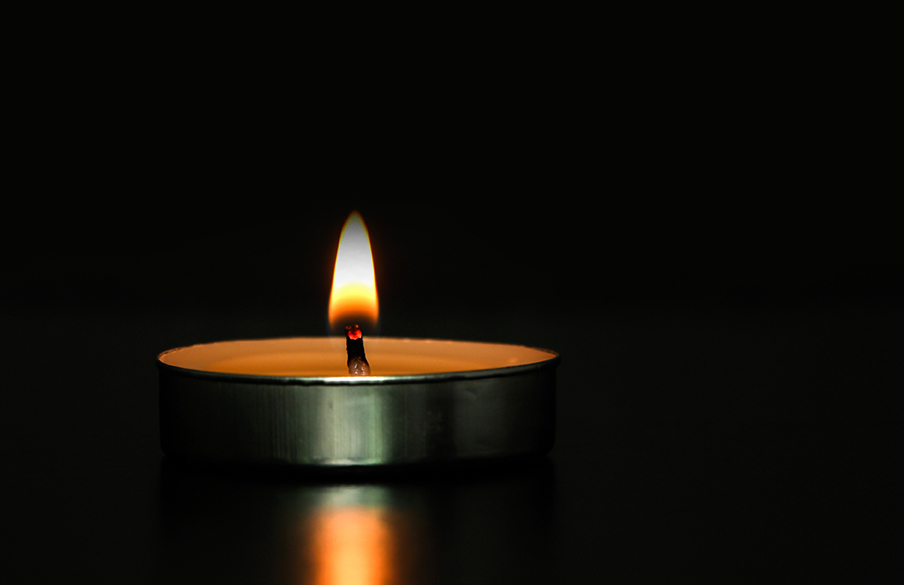
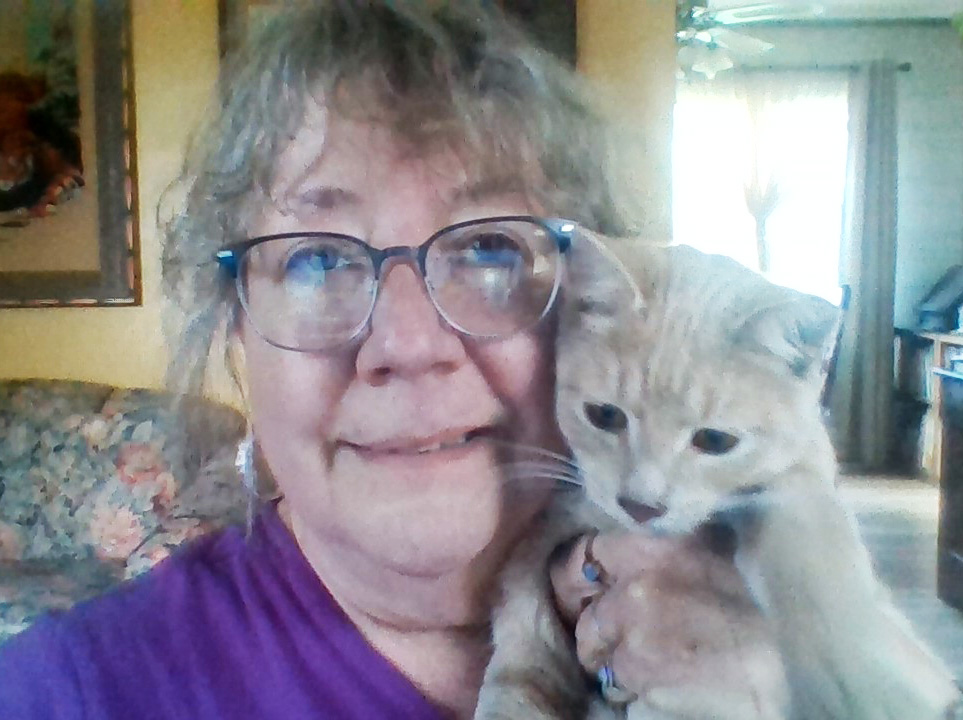 In every aspect of its work, Homeland Hospice brings a team approach to care. Volunteers are an essential part of this group. Through their unique talents and open hearts, Homeland Hospice volunteers bring friendship and kindness to patients during their end-of-life journey and comfort to families who have lost loved ones. Homeland is grateful to all of its volunteers and recognizes their extraordinary efforts.
In every aspect of its work, Homeland Hospice brings a team approach to care. Volunteers are an essential part of this group. Through their unique talents and open hearts, Homeland Hospice volunteers bring friendship and kindness to patients during their end-of-life journey and comfort to families who have lost loved ones. Homeland is grateful to all of its volunteers and recognizes their extraordinary efforts.